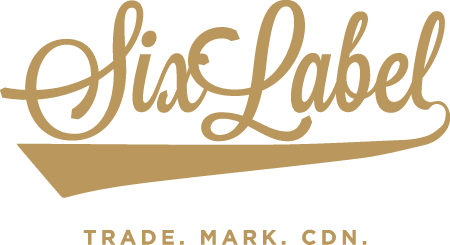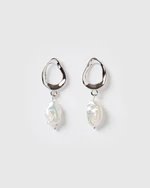
Unveiling the Secrets of Clothing Brand Manufacturers: A Comprehensive Insight
In the ever-evolving world of fashion, clothing brand manufacturers play a pivotal role in bringing the latest trends and styles to consumers worldwide. These behind-the-scenes heroes are responsible for transforming creative ideas into tangible garments that fill our wardrobes. In this article, we will delve into the world of clothing brand manufacturers, exploring their significance, factors to consider when choosing one, sustainability trends, challenges they face, and the future of this industry.
The Role of Clothing Brand Manufacturers in the Fashion Industry
Clothing brand manufacturers are the unsung heroes of the fashion industry. They are the skilled craftsmen and production facilities that turn a fashion designer’s vision into a reality. Without them, the fashion world would cease to exist as we know it. Here are some essential roles they play:
1. Bringing Designs to Life
The primary function of clothing brand manufacturers is to bring fashion designs to life. They are responsible for turning sketches and ideas into actual garments. This process involves sourcing materials, pattern making, cutting, sewing, and quality control.
2. Cost-Effective Production
Manufacturers often produce clothing in bulk, which reduces production costs per unit. This allows brands to offer their products at competitive prices, making fashion accessible to a broader audience.
3. Meeting High Standards
Clothing brand manufacturers are experts in their craft, ensuring that garments meet high-quality standards. This includes attention to detail in stitching, fabric quality, and overall finish.
4. Scalability
Manufacturers have the infrastructure and expertise to scale production up or down according to the brand’s needs. This flexibility is crucial for both emerging and established fashion labels.
Key Factors to Consider When Choosing a Clothing Brand Manufacturer
Selecting the right clothing brand manufacturer is a critical decision for any fashion brand. Here are some key factors to consider when making this choice:
1. Expertise and Specialization
It’s essential to choose a manufacturer that specializes in the type of clothing you intend to produce. Some manufacturers may excel in activewear, while others focus on formal attire. Match the manufacturer’s expertise with your brand’s needs.
2. Location
The location of your manufacturer can impact shipping costs and lead times. Consider whether you want to work with a local manufacturer or are open to international options. Each choice has its pros and cons.
3. Production Capacity
Determine whether the manufacturer can handle your production requirements. Some manufacturers may not be equipped for large-scale production, while others may have minimum order quantities that are too high for a small brand.
4. Ethical Practices
In today’s socially conscious world, many consumers are concerned about the ethical practices of fashion brands. Consider whether the manufacturer aligns with your brand’s values in terms of fair labor practices, sustainability, and ethical sourcing of materials.
Trends in Clothing Manufacturing: Sustainability and Ethical Practices
The fashion industry is evolving rapidly, with sustainability and ethical practices taking center stage. Clothing brand manufacturers are adapting to these changes to meet the demands of both consumers and brands. Here are the trends reshaping clothing manufacturing:
1. Sustainable Materials
Manufacturers are increasingly using eco-friendly materials such as organic cotton, recycled fabrics, and sustainable alternatives to synthetic materials. This not only reduces the environmental impact but also aligns with the values of conscious consumers.
2. Ethical Production
Brands and manufacturers are working together to ensure ethical production processes. This includes fair wages, safe working conditions, and transparency in the supply chain.
3. On-Demand Production
To reduce waste and overstock, some manufacturers are adopting on-demand production methods. This means they produce garments only when there is a confirmed order, reducing excess inventory.
4. Circular Fashion
Manufacturers are exploring circular fashion models, which focus on reusing and recycling materials to minimize waste. This approach promotes sustainability by extending the lifecycle of clothing.
Challenges Faced by Clothing Brand Manufacturers in the Modern Era
While the clothing manufacturing industry is adapting to new trends, it also faces several challenges in the modern era:
1. Fast Fashion Pressure
The fast fashion model has put immense pressure on clothing brand manufacturers to produce large quantities of clothing at a rapid pace. This often sacrifices quality and sustainability in the name of quick turnover.
2. Supply Chain Disruptions
Global supply chain disruptions, like the ones experienced during the COVID-19 pandemic, have affected manufacturers’ ability to source materials and meet production timelines.
3. Rising Costs
Increasing labor and material costs can squeeze the profit margins of manufacturers. Balancing quality and affordability becomes more challenging.
4. Sustainability Investments
Transitioning to sustainable and ethical manufacturing practices can be costly in the short term, but it’s a necessary step to meet the demands of conscious consumers.
The Future of Clothing Brand Manufacturers: Innovation and Adaptation
The future of clothing brand manufacturers is poised for innovation and adaptation. As the fashion industry continues to change, manufacturers must evolve to stay relevant. Here are some insights into what the future holds:
1. Technological Advancements
Manufacturers are integrating technology into their processes, from 3D design and digital pattern-making to AI-assisted quality control. These innovations streamline production and reduce errors.
2. Localized Production
Some brands are exploring localized production, reducing shipping distances and supporting local economies. This can be a win-win for brands and their customers.
3. Customization
As consumers seek unique and personalized clothing, manufacturers are exploring customization options, allowing individuals to design their own garments.
4. Further Sustainability Initiatives
Manufacturers will continue to invest in sustainability, exploring closed-loop production systems, innovative recycling techniques, and greener supply chains.
Conclusion
In conclusion, clothing brand manufacturers are the backbone of the fashion industry, turning creative concepts into tangible products that fill our closets. Selecting the right manufacturer is a crucial decision for any fashion brand, as it can impact quality, ethical practices, and the brand’s success. As the industry continues to evolve, manufacturers are adapting to meet the demands of sustainability-conscious consumers and exploring innovative ways to stay relevant in the ever-changing world of fashion. The future of clothing brand manufacturers is full of promise, with technology, sustainability, and adaptability at the forefront of this dynamic industry.




